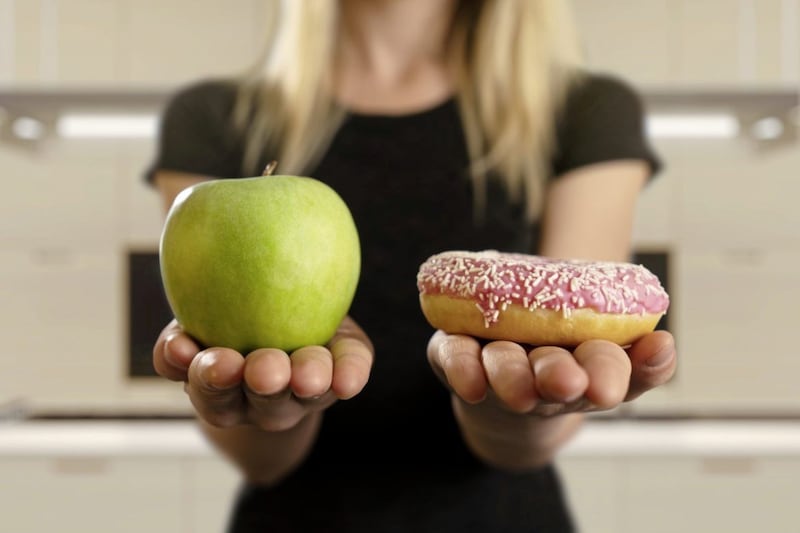DIETARY fibre may not be the most glamorous subject in the nutrition world but there may be more to this indigestible substance than keeping us regular. Getting sufficient fibre in our diet could play a role in supporting weight management, blood-sugar control, cardiovascular health and hormone balance.
:: What is fibre?
When we think fibre, most of us instinctively think ‘roughage’ from foods like brown bread, whole grains and added bran. This sort of fibre is called insoluble fibre and is also found in the seeds and skins of fruit and vegetables. Soluble fibre is found in fruit, vegetables, beans, lentils, oats, psyllium husks, flaxseed and wholegrains like oats.
One type is not better than the other – they just have slightly different functions in the body. It is important to get a combination of both types of fibre in your diet.
Most of us just do not get enough. Our reliance on white foods like white bread, white rice and white pasta means our fibre intake is not up to scratch. Even if we make careful choices, and opt for whole wheat products, most of these contain mostly white flour. Read labels and avoid “flour” and “unbleached flour,” both of which are simply white flour.
:: Benefits of fibre in your diet:
- Fibre helps with weight management. Eating more fibre helps regulate our appetite, keeping us feeling full for longer, so we eat less.
- Fibre helps keep weight off. Research shows that people who eat more fibre tend to be leaner overall.
- Fibre feeds our good bacteria. It acts like a prebiotic, or ‘fertiliser’ for our beneficial probiotic bacteria.
- Fibre helps insulin balance and keeps blood sugar steady. Not only does this help with weight loss, but also dramatically reduced our risk of type 2 diabetes.
- Fibre-rich foods are good sources of hormone-balancing plant chemicals called phytoestrogens. Beans, lentils, oats and flaxseed are great sources and can help with PMS.
- Soluble fibre helps balance cholesterol.
:: Top tips for upping your fibre intake:
Apart form being another good reason to eat at least five portions of fruit and vegetables a day, there are a few easy ways to up your fibre intake.
- Swap white foods like bread, rice and pasta for wholegrain versions. If this is a step too far, then look out for 50:50 varieties of pasta and bread.
- Eat peas, beans and lentils at least three or four times a week, Three-bean salad, houmous, lentil soup, adding chickpeas to curry or puy lentils to Bolognese are easy ways to top your levels up.
- Start your day with a wholegrain cereal such as porridge or low-sugar granola. Add a spoonful of chia or flaxseed too for a fibre-packed breakfast.
- Eat seeds. Chia, flax, sunflower and pumpkin are all good. Try sprinkling toasted seeds over salad for a tasty twist.
- Snack on fruit, vegetables sticks with houmous, unsalted nuts or seeds, or oatcakes.
- Eat more root vegetables like sweet potato, carrots, parsnips, butternut squash.
- Eat a couple of portions of fruit every day – apples, berries and kiwi are especially high in fibre. You may find that these are easier to digest if they are cooked a little. Try stewed apple, berry compote or poached pears.
- Remember to eat vegetables at lunchtime. Adding a few carrot sticks, some cherry tomatoes and some salad leaves to your lunchbox can make all the difference, or have a bowl of homemade soup with your usual sandwich to increase your intake of fibre.
- Eat potatoes with their skins on.
- Eat your fruit with its skin on. Apples, pears, plums and soft fruit like apricots and peaches are best eaten whole, not peeled.
- Use vegetables in creative ways to increase your intake eg spiralised carrot instead of pasta, or sweet potato wedges instead of chips.
- Dried fruit like prunes, apricots and figs are great in moderation. They are fairly high in sugar, but can give a much needed fibre boost.
vital-nutrition.co.uk








